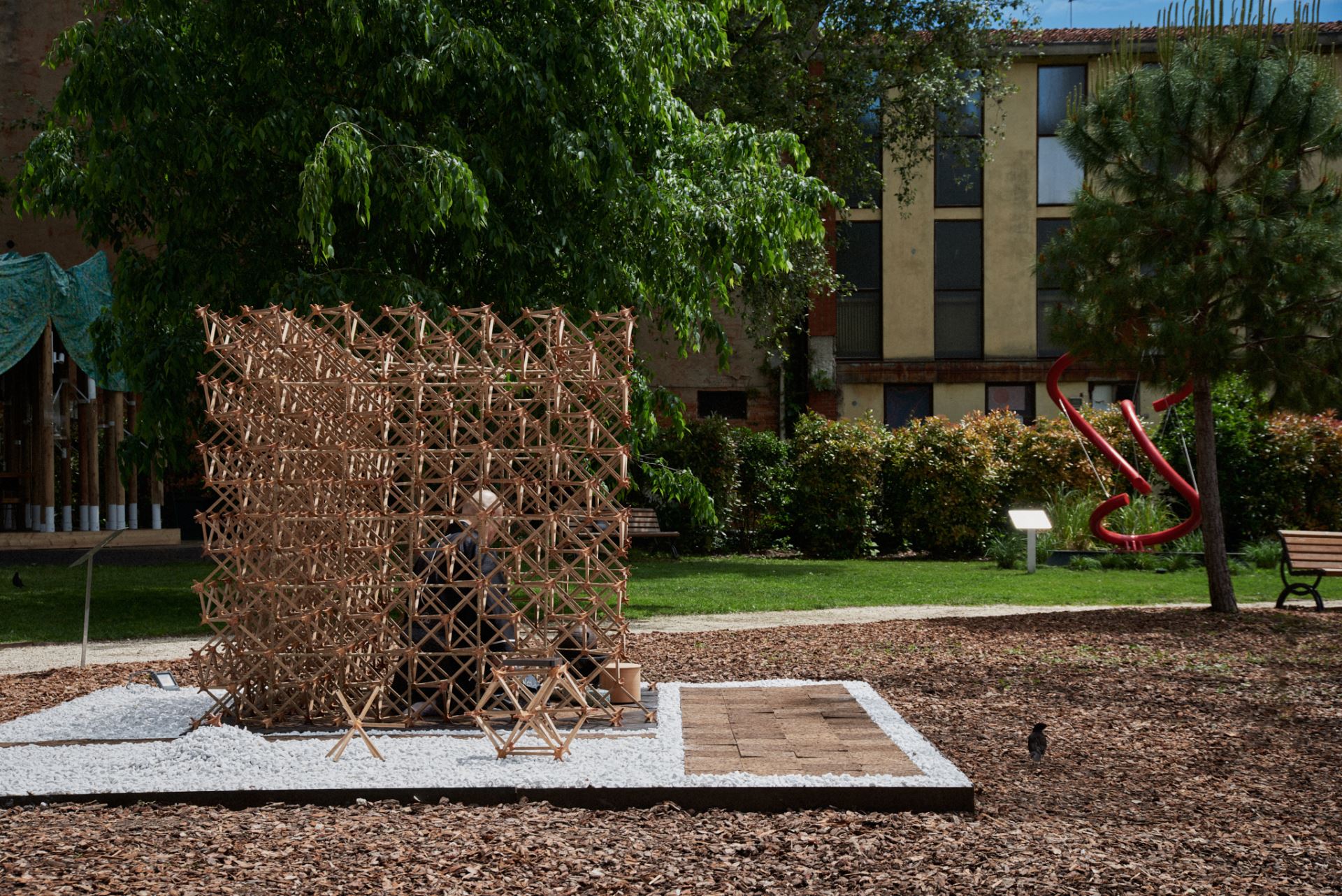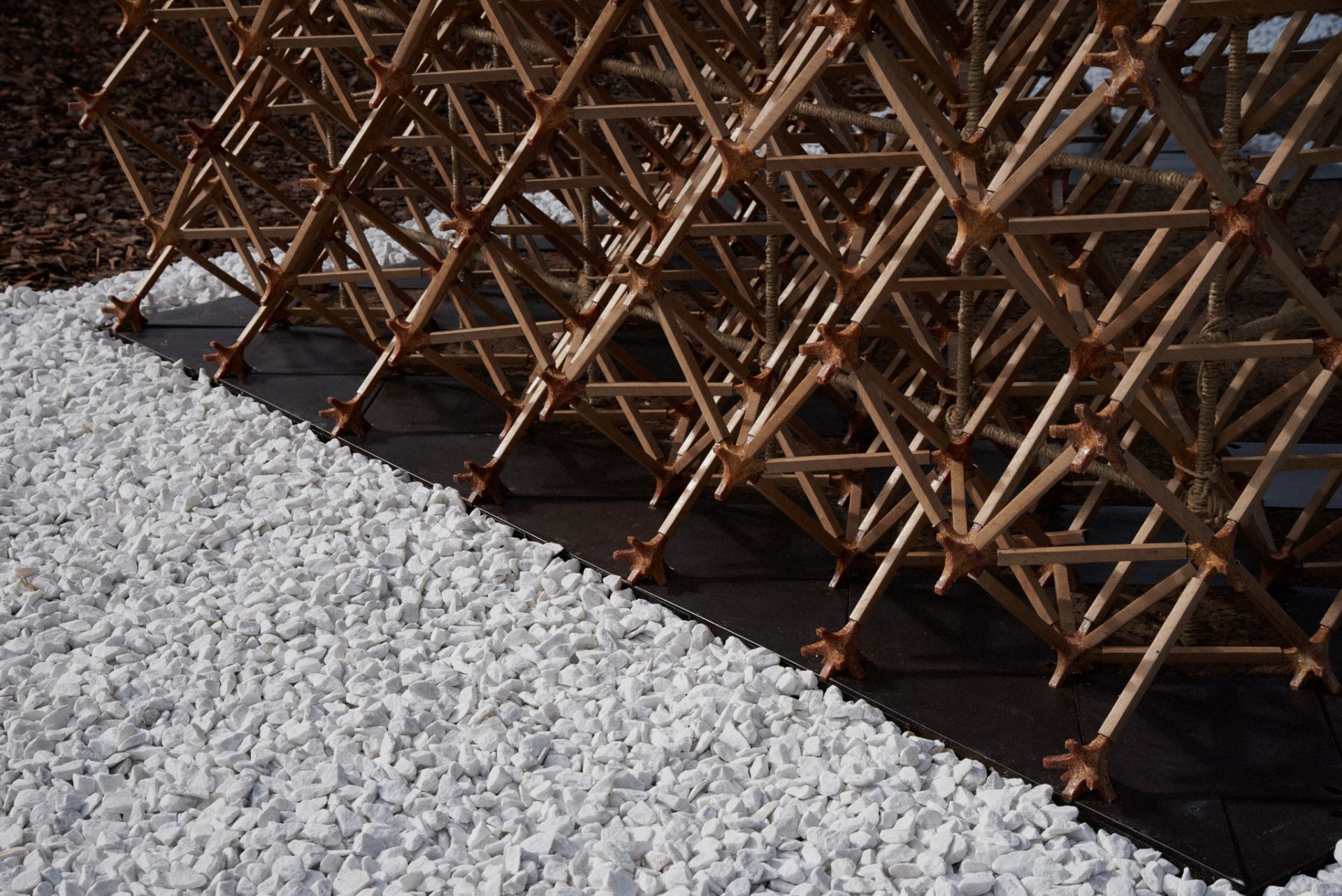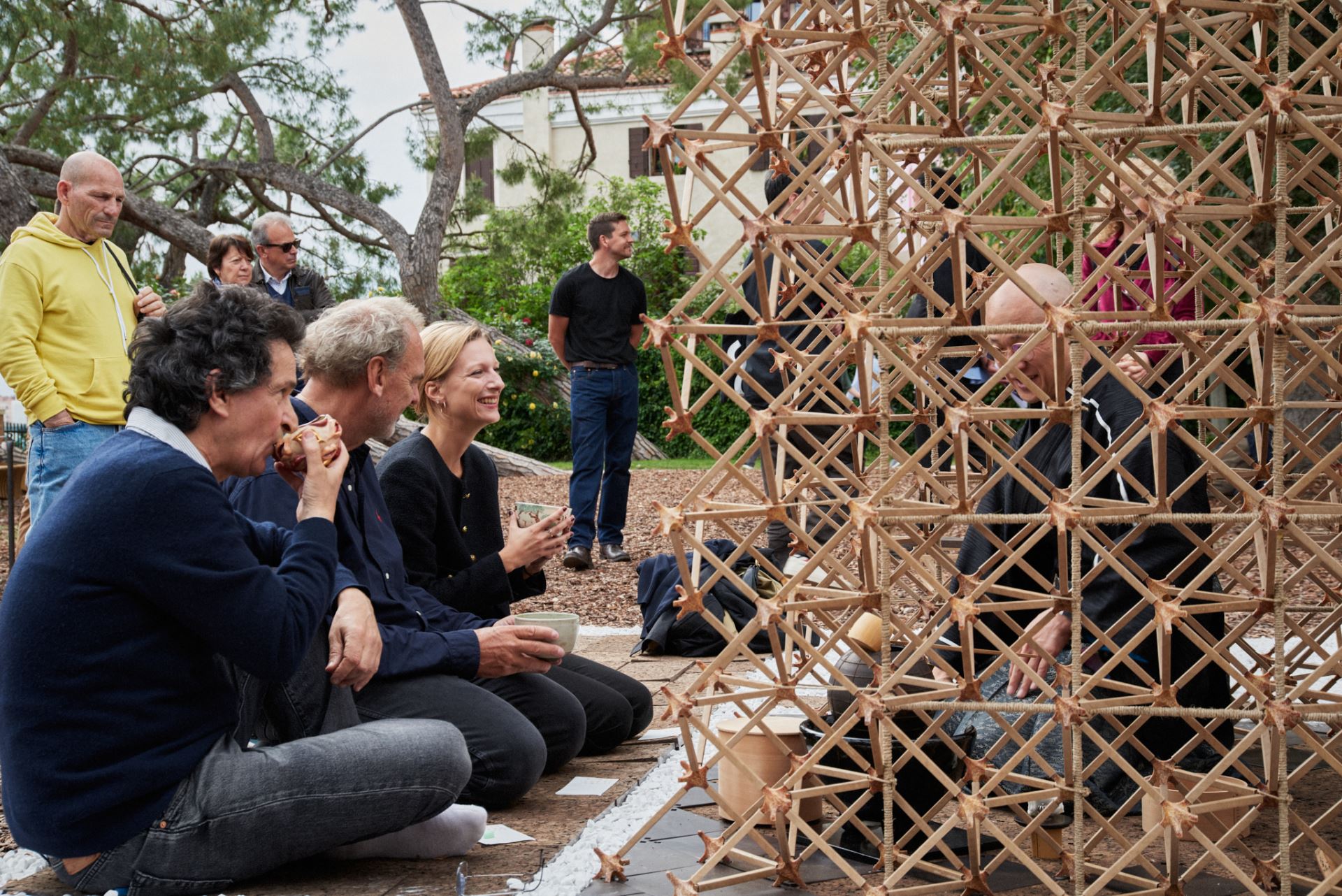


【獎項 Prizes】優選 Distinction
【國家或地區 Country / Region】日本 Japan
【設計團隊 Group / 設計師 Designer】 三菱地所設計 Mitsubishi Jisho Design / 藤 貴彰 Takaaki FUJI, 稲毛 洋也 Hiroya Inage, De Yuan Kang
【作品介紹 Description】
該項目為一系列原型,第一個名為「Veneti-An」(「an」意思是日本茶屋名稱常用的「簡單小屋」),已在 2023 年威尼斯建築雙年展的 TIME SPACE EXISTENCE 展示,而 Arabi-An 已計劃在 2023 年杜拜設計週展示。
這些裝置遵循三個原則構思:
人文:茶在歷史層面象徵著人們之間的溝通。在現今分裂的世界,透過對話建立跨文化聯繫的地點被選為是最相關的表現。
通用性:根據緯度調節滲透性,可以控制光與風的質量,來適應該區域。雖然設計參數很普遍,但與地理條件匹配會產生與其環境不同的設計。
永續性/循環性:食物浪費在許多國家都是重大的問題。威尼斯裝置融入當地的文化習俗,其組件完全由當地的「義大利麵與咖啡渣」食物廢棄物製成。
在展覽結束之後,那些因暴露在當地環境條件而變得獨特的組件可以被賦予第二次生命,轉化為傢俱。
The project is a series of prototypes, the first called ‘Veneti-An’ (“an” meaning “simple hut” often used for names of teahouses in Japan) was showcased in TIME SPACE EXISTENCE at Venice Architecture Biennale 2023 and Arabi-An, has been scheduled for Dubai Design Week 2023. The installations have been conceived with 3 tenets:
People: Tea historically symbolizes communication amongst people. In today’s divided world, a site that builds intercultural connections through conversations was chosen as the most relatable representation.
Universality: Modulating permeability according to latitude enables control of the quality of light and wind to adapt to the region. While the design parameters are common, matching to geographical conditions results in a design that is distinct to its context.
Sustainability/Circularity: Food waste is a significant problem in many nations. Assimilating to local culture and practices, the Venice installation is made of parts produced solely from localized food waste of ‘pasta & coffee grounds’.
After the exhibition, components that have become unique due to exposure to local environment conditions can be given a second life and transformed into furniture.



